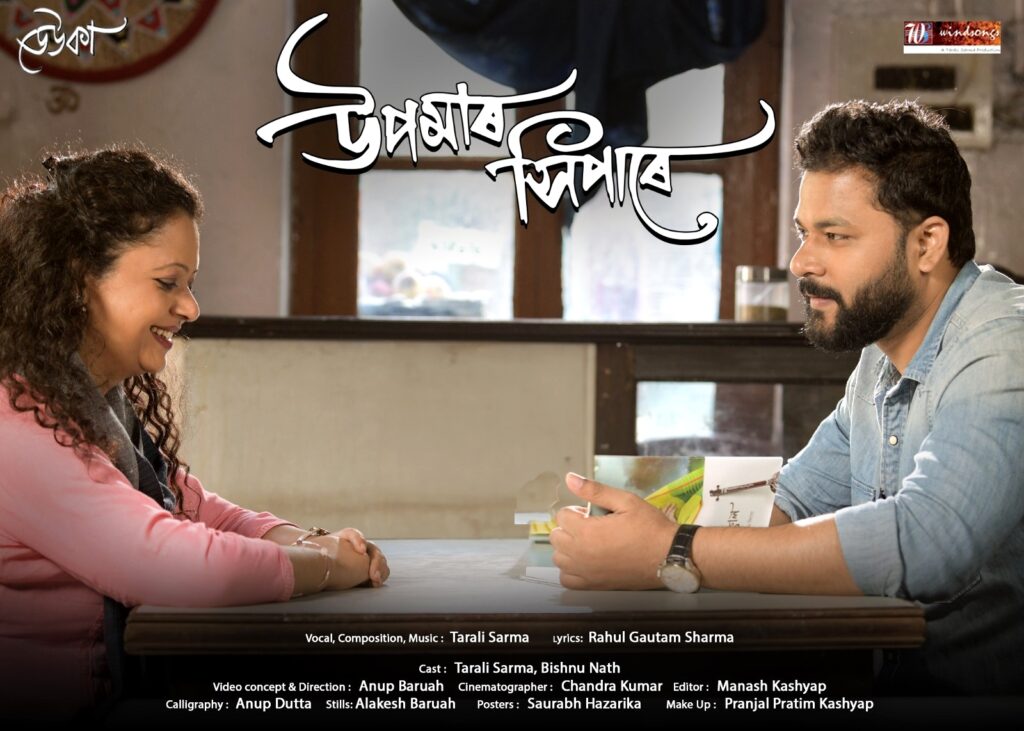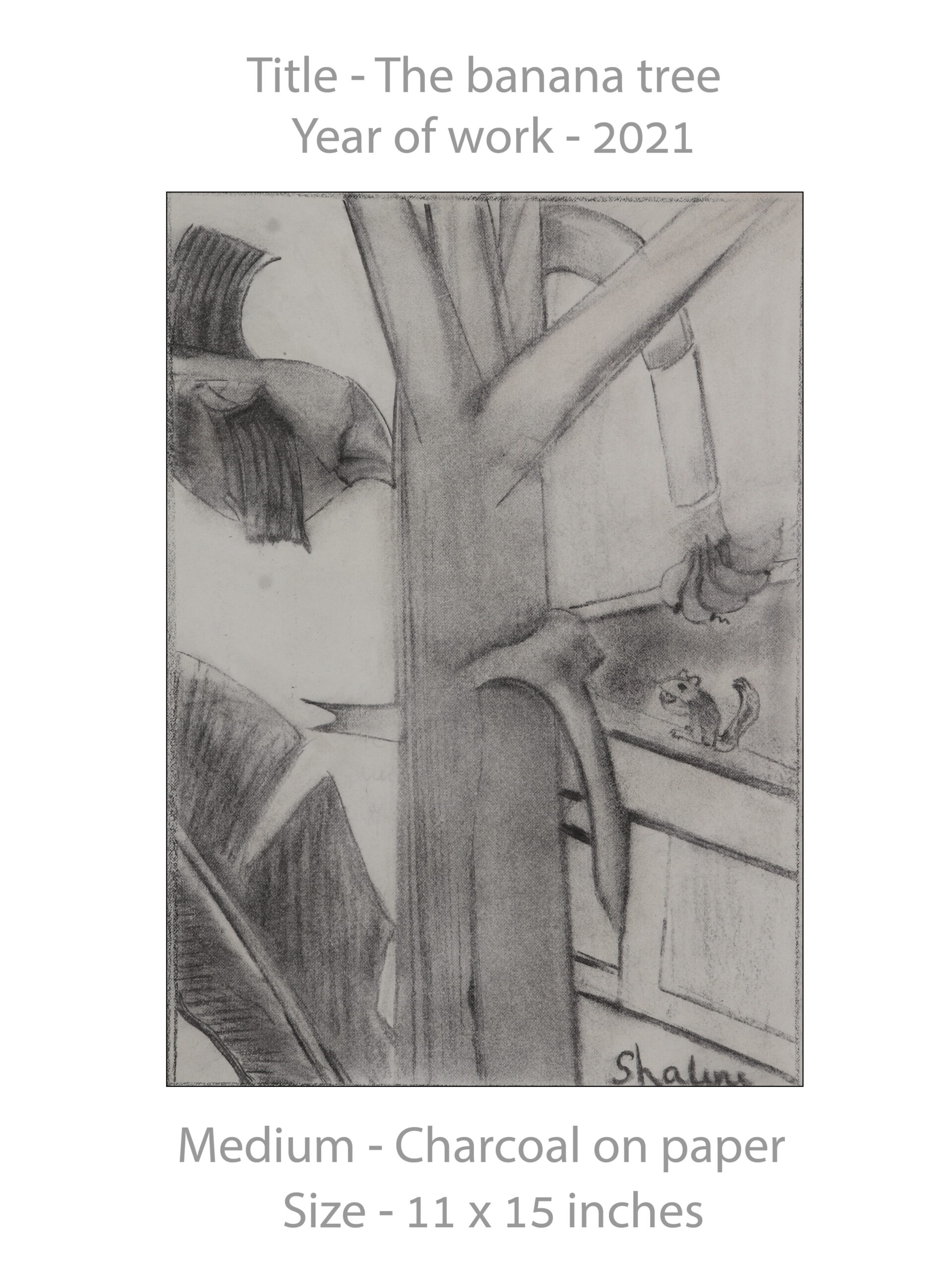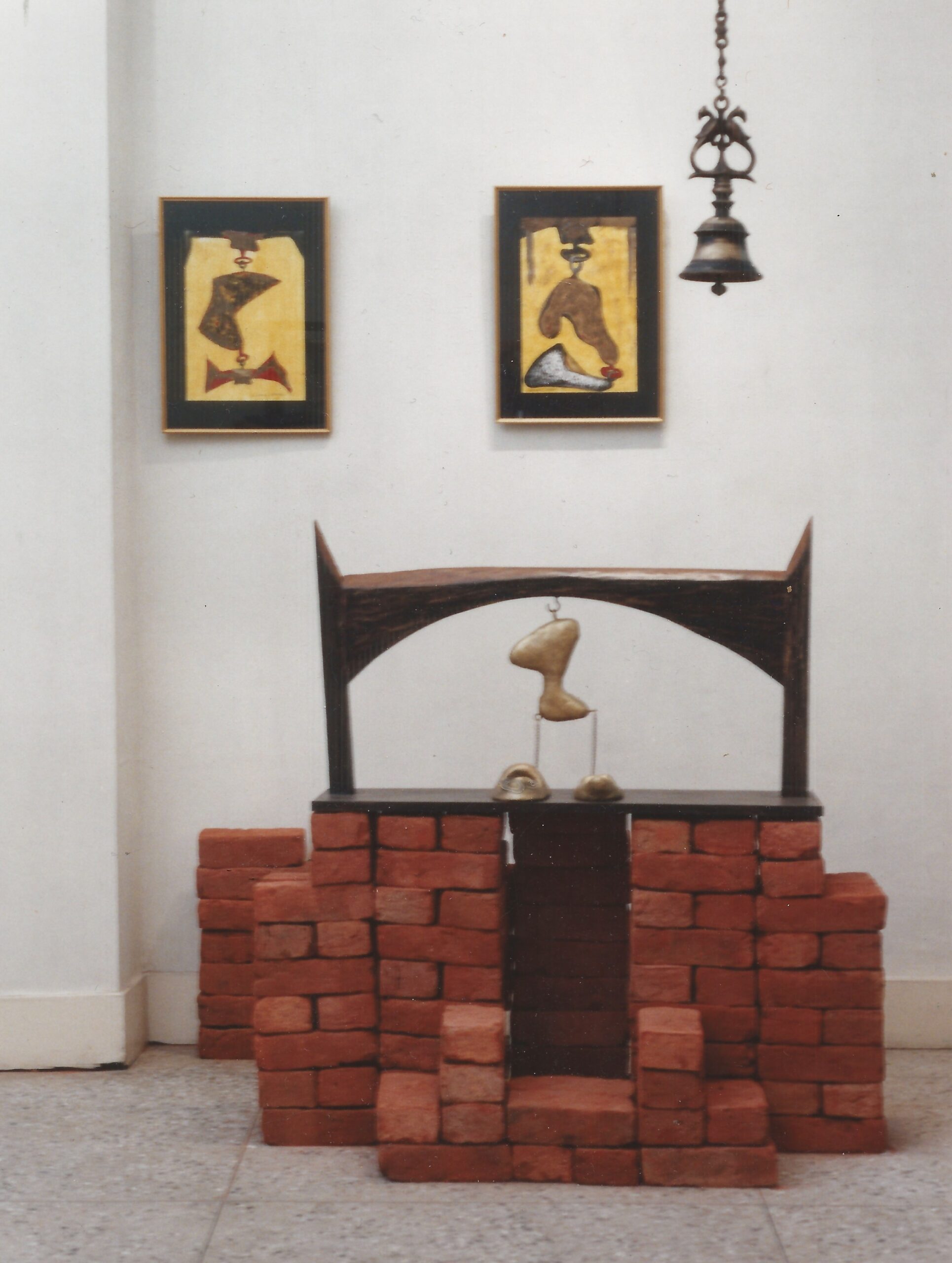Tarali’s musical experiment with Anup Baruah

Tarali Sharma’s cinematic song, ‘Upomar Sipare,’ is her latest contribution to the industry. She earned the National Film Award for Best Female Singer for the Assamese film ‘Akashitorar Kathare,’ a well-deserved recognition that thrust her into the national spotlight. Before receiving this accolade, her talent had been confined to the regional sphere. Once she transcended those boundaries, she faced the challenge of maintaining her prowess on a national scale. Working in a remote place like Assam, within a small film world with limited resources, it was difficult for her to maintain a national level in all her work.
Yet, through dedication and hard work, she sustained her capabilities and showcased her multifaceted talents as a singer, lyricist, music composer, and director for both stage and film productions. She also served as a jury member in the National Film Award, enriching her with a wide variety of cinematic experiences. Her diverse experiences in these interconnected fields enhanced her creative pursuits, exemplified by her latest song ‘Upomar Sipare.’
Presented in a visual format, this song defies prevailing norms in music videos. Rahul Gautam Sharma, an upcoming lyricist-singer, penned the song, showcasing his praiseworthy command over the Assamese language. The song takes the form of a short film (duration 8 minutes), depicting emotional moments between a singer and her fan during a brief encounter. Tarali herself portrays the singer, staying true to her character.
The narrative unfolds as she encounters a young boy at a homestay near her house. Their gradual acquaintance reveals him as a devoted fan. The young boy purchases a biography of Tarali Sharma and asks her to sign the book. The book, written by Alex Figo, portrays the musical journey of Tarali Sharma. In the film, director Anup Baruah establishes her as she is and includes the fictional character of the photographer. Anup establishes her residence ‘Puwati’ (early morning), known to most culturally inclined people of Assam. Again, the homestay he shows is a fictional entity. This interesting mix of a real character with a fictional makes the narrative intriguing, diminishing the thin line between fact and fiction. When the photographer leaves, he gifts her a beautiful portrait, prompting Tarali to reflect on the unexplained bond they shared.
Anup Baruah, a renowned still photographer, crafts this sweet and concise film. Each frame is meticulously composed to convey the adjacent emotions of the narrative. Despite being dialogue-free, Baruah skilfully captures expressive moments.
As the central character, Tarali shoulders the responsibility of conveying all emotional nuances through the journey. The film may be short in length, but it exhibits the growth of a drama feature film. Tarali effortlessly breathes life into the visuals, portraying subtle expressions with rapid transitions—a testament to her acting competence.
Bishnu Nath, portraying the young photographer, complements Tarali’s performance by doing justice to his character. Cinematography by Chandra Kumar Das supports the simple yet underplayed dramatic narrative.
Integral to this creation is the song, serving as practical background music. It enhances the visual moods, with melody and instrumental sounds playing pivotal roles while the lyrics align with powerful visuals. The composition weaves the vocal part seamlessly into the entire musical narrative. As a busy music director in Assam, Tarali’s vast experience prompted her to experiment with a different musical pattern for this song, combining instrumental and vocal elements to create a unique musical experience.
This experimental approach served as a crucial test for both the director and the music director. In the end, they have delivered a meaningful and out-of-the-box experience
—- Utpal Datta.
First published in The Daily Eye (www.thedailyeye.info)












Excellent narrative…on Tarali’s musical experiment. The fascination of the North-East is often overlooked by a majority of cinephiles. Film reviewers like Mr.Utpal Datta are doing a commendable job bringing the fable-telling – a la North-East-style into sharp focus.
চমৎকাৰ আখ্যান…তৰালীৰ সংগীত পৰীক্ষাৰ ওপৰত। উত্তৰ-পূৰ্বাঞ্চলৰ মোহক প্ৰায়ে গৰিষ্ঠসংখ্যক চিনেমাপ্ৰেমীয়ে উপেক্ষা কৰে। উৎপল দত্ত ডাঙৰীয়াৰ দৰে চলচ্চিত্ৰ পৰ্যালোচকে উপকথা কোৱা – আলা উত্তৰ-পূব শৈলীক চোকা দৃষ্টিগোচৰ কৰি প্ৰশংসনীয় কাম কৰিছে।
ترالی کے موسیقی کے تجربات پر بہترین بیانیہ۔ شمال مشرق کے سحر کو اکثر فلمی شائقین کی طرف سے نظر انداز کیا جاتا ہے۔ مسٹر اتپل دتہ جیسے فلمی نقادوں نے افسانہ نگاری – الا شمال مشرقی طرز کو تیز توجہ میں لا نے کا ایک قابل ستائش کام کیا ہے۔
Thank you so much. I am honoured and humbled.